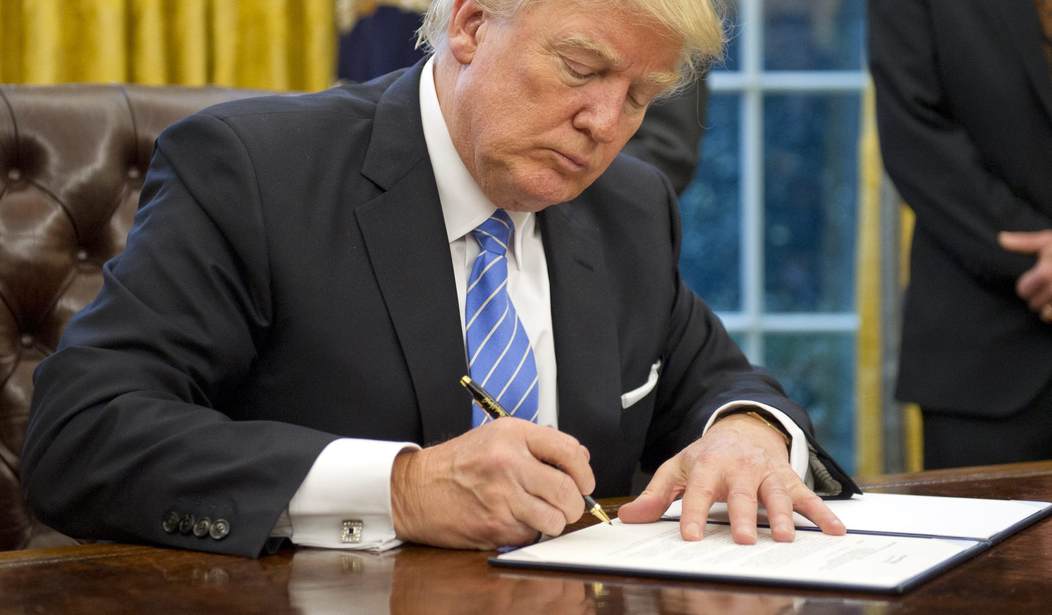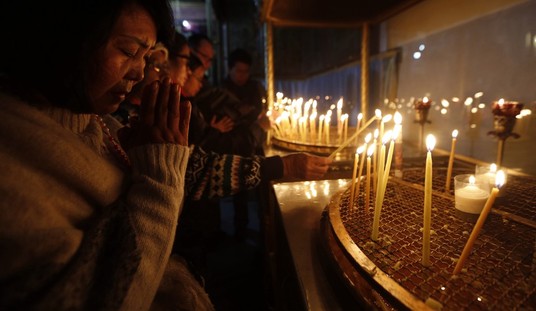No matter what you think about Trump’s executive order banning travel to the U.S. for people from certain Muslim countries, there is no denying the chaos it has caused overseas for permanent U.S. residents who are unable to come home.
Many permanent legal U.S. residents were told they could not set foot on U.S. soil as they returned from trips abroad — a shock to a group that’s just one step short of American citizenship. Some travelers were barred from boarding planes to the United States. Two Iraqis, one who had obtained a visa for helping U.S. troops and another trying to reunite with his refugee family, reached a New York airport but were prevented from entering the U.S., sparking a lawsuit. Certain people with dual citizenship are now barred from the U.S., possibly indefinitely, even if they once could visit without a visa. Companies such as Google and Microsoft spoke out against Trump’s order, saying it would hurt many of their employees.
“The executive order is an unprecedented and discriminatory assault on whole groups of people that plays to our worst fears,” said Royce Murray, policy director at the American Immigration Council. “It’s not unreasonable to expect backlash from countries around the world who want to show the United States that this is the wrong way to go.”
Iran appears to be the first country to retaliate:
It’s unlikely many countries will flat out bar Americans, who often are a critical source of tourism revenue. But they might slow down the visa issuance process, impose their own ideological tests during visa interviews, or take other steps to retaliate. Several years ago, an outraged Brazil imposed fingerprinting and photographing requirements for American visitors after its citizens were subject to similar treatment by the United States, an episode that soured relations and led to hours of headaches for even some U.S. diplomats.
Separately, some countries, such as China, may curtail cooperation on other fronts, such as accepting Chinese citizens ordered deported from the United States, some of whom may have committed crimes. Even Iran, which does take small numbers of deportees back every year, may now stop doing so.
According to Iranian state media, the country’s foreign ministry issued a lengthy statement slamming Trump’s order as “a great gift to extremists and their sponsors” and promising to “reciprocate.”
“People need to realize there’s an ebb and flow to these things,” said Leon Fresco, an immigration attorney and former Department of Justice official. “All visas, they work on this basis of reciprocity. Brazil makes us get visas to go to Brazil because we make them get visas to come here.”
Countries in Europe and other strong U.S. allies could also be affected because the order also covers people with multiple nationalities. Many of those countries are part of what’s known as the Visa Waiver Program, which allows their citizens to temporarily visit the United States without a visa. But the State Department confirmed Saturday that if any of those same citizens also hold nationalities from the seven Muslim-majority countries singled out by the order, they, too, will be barred from entering the United States.
Some are questioning whether Trump and his aides fully considered the consequences of the executive order before publishing it:
But as they digested the executive order starting on Friday, several leaders of advocacy organizations as well as members of agencies such as the State Department said it appeared the Trump administration had not fully thought through the implications of what it was imposing. The president’s aides had done little, if any, consulting with top policy-makers and lawyers from the various agencies now in charge of implementing the proposal.
Greg Chen, advocacy director for the American Immigration Lawyers Association, said Saturday morning that people across the government were trying to figure out how the order works.
“I have spoken with government officials in the relevant agencies who were not aware of the specifics of this executive order until late last night,” he said, “when the entire world learned what was involved.”
The chaos and confusion overseas and uncertainty in the government here at home point to one inescapable conclusion: this executive order should never have been issued without far more preparation and consultation.
It is astonishing that Trump aides failed to fully and carefully consult with the relevant agencies so that everyone was on the same page on day one as far as the scope and purpose of the executive order. It’s incredible that the order applies to permanent residents of the U.S.—people who enjoy the exact same rights and privileges granted by the Constitution to citizens. In effect, Trump has created a two-tier system of constitutional rights, which endangers the legality of the entire executive order.
Most of us who opposed President Trump fully expected this sort of incompetence from someone with absolutely no experience in government. It’s mildly surprising this kind of stupidity manifested itself so soon.










Join the conversation as a VIP Member